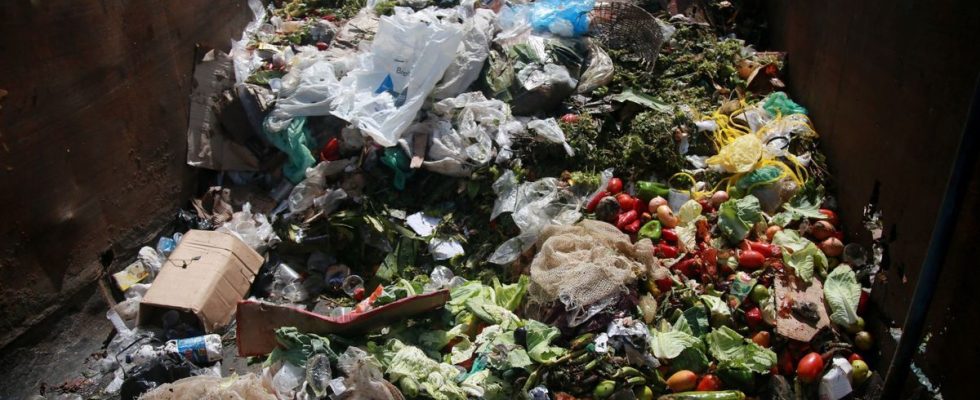Published on
Updated
Reading 2 mins.
While Earth Day will commit us on April 22 to act more effectively to defend the resources essential to our lives, a recent scientific study calls out the consequent impact of food waste on the environment.
While in July 2021, a study by WWF and Tesco revealed that 40% of food was wasted in the world, a comparative analysis carried out by researchers from Nanjing Forestry University in China, jointly with the National University of Singapore, now underlines the environmental disaster represented by this vast mess. First of all, it should be remembered that the global food system is the source of approximately one third of total annual greenhouse gas emissions. In total, in 2017, scientists estimated that food waste had generated 9.3 billion tonnes of CO2 (expressed in GT CO2 in the study published in the journal nature food). By comparison, this sum almost corresponds to the combined total emissions of the United States and the European Union. And this is not without consequences for the planet: food waste is in fact responsible for half of the carbon emissions generated by the food industry.
By analyzing data on the food supply, this study provides new elements to measure the extent of the impact of food waste. It should be noted that in terms of supply, we refer to harvesting as well as production, storage or even transport, processing and sale. The scientists took into account data from the FAO – the food and agriculture organization of the United Nations, concerning no less than 164 countries and regions, for a period running between 2001 and 2017. elsewhere, the data of 54 food products corresponding to four main categories, that they are cereals and legumes, meat and animal products, roots and oleaginous plants as well as fruits and vegetables, were peeled. As a result, when we combine the data associated with China, India, the United States and Brazil, these giants generate around 44% of global emissions when we only take into account the supply of food waste produced.
Contrary to popular belief, cereal, fruit or vegetable waste is not primarily responsible for CO2 emissions. Meat and animal products are responsible for 73.4% of global supply emissions from food waste. Processing beef and lamb generates 13 times more carbon emissions than processing tomatoes.
In the methodology, to the consequences of supply have also been added those of waste management, which makes it possible to obtain a broad and realistic view of the environmental impact of food waste. Once again, when China, the United States, India and Brazil are combined, 38% of global emissions related to food waste are linked to waste management.
In conclusion, let us recall that the United Nations has set the objective of reducing food waste by half by 2030…
